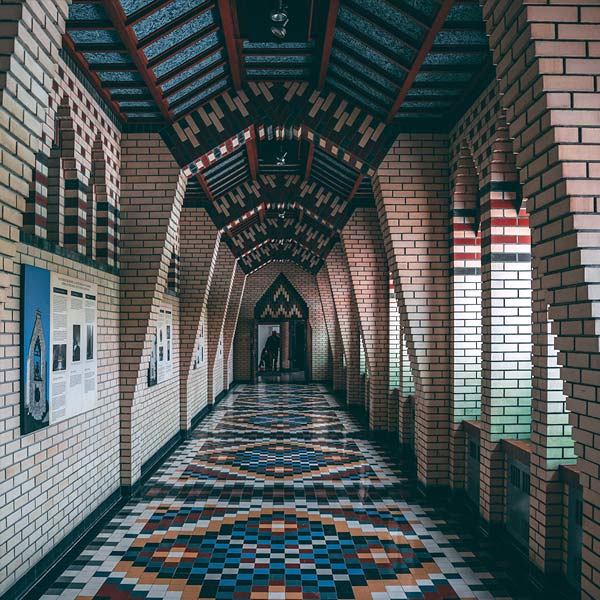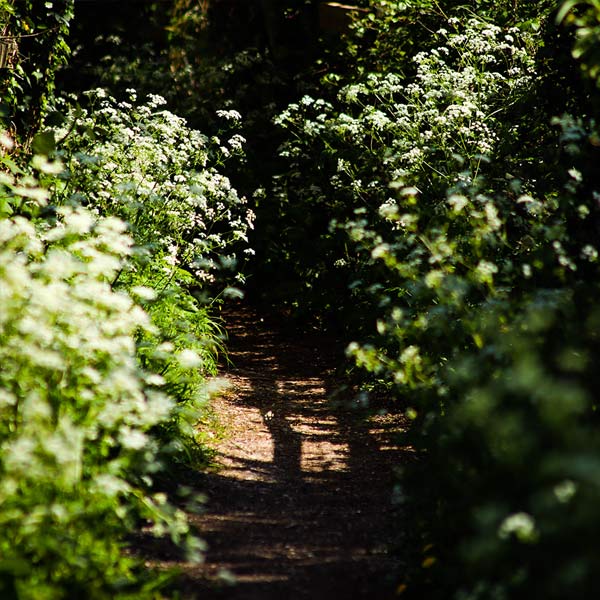wcag heading
From Pg. 8
The homes formed a circle, and in its center was the village green. And in the center of that were the pine trees that soared over the community. Three great spires that inspired the name. Three Pines. These were no ordinary trees. Planted centuries ago, they were a code. A signal to the war- weary.
Louise’s Thoughts:
It’s funny how we pick up ideas, isn’t it? I sat beside an elderly stranger at a social, in a church basement, and she told me the story of the three pines. She had them planted in front of her house. Had been there for more than a hundred years. And that they were a signal to those loyal to the British crown, flooding across the boarded during the War of Independence, that they were safe in Canada. I heard that story years before starting to write, and always loved the symbolism of it. The kindness of the act, the awareness of how weary and confused and frightened those immigrants must’ve been. And then, the unimaginable power of knowing they were safe. Unbeknownst to me, in the church basement over dinner with a stranger, the seeds not just of the village, but the themes of Three Pines were planted.
From Pg. 10
She passed this small mystery every day on her walks with Armand. They walked past the old school house, where Armand had almost been killed. They walked through the woods, where Armand had killed. Each of them very aware of the events. Every day they turned around and returned to the quiet village and the bench above it. And the words carved into it by some unknown hand — Surprised by Joy
Louise’s Thoughts:
The recurring theme of unexpected gifts. Of the kindness and grace of strangers. That someone would know the significance of that phrase not just for Armand, but for the whole village. How very healing it is. It comes, as you might know, from the title of a CS Lewis book. And was Michael’s favourite saying. A recurring theme in our lives together, and beyond. Surprised by Joy. Who’d have thought there could be so much joy? And so many surprises.
From Pg. 39
“There is a balm in Gilead,” she read from the back, “to make the wounded whole—”
“There’s power enough in Heaven / To cure a sin-sick soul.” Armand Gamache finished the phrase. “It’s from an old spiritual.”
Clara stared at the back cover. “Do you believe it, Armand?”
“Yes.” He took the book from her and grasped it so tightly in one hand she half expected words to squeeze out.
“Then what are you struggling with?” When he didn’t answer, she had her answer.
Louise’s Thoughts:
Love, love, love that spiritual. Hope. Healing. And for Armand, at this point in his life, so wounded deep down, there is comfort. THE LONG WAY HOME is one of my personal favourite books, perhaps because it’s very quiet. Inverted even, like the cover. We travel deeper and deeper, into the search for Peter, into Quebec, and into Armand’s pain. But always, always, with awareness, that there is a balm, that can make the wounded whole. I’m often asked about the book Armand is reading and if it’s a real book. It is not. Just something I made up.
From Pg. 74
Myrna found it strangely calming. Her mother’s and grandmother’s comfort smells were cut grass and fresh baking and the subtle scent of line- dried sheets. For Myrna’s generation the smells that calmed were manufactured. Melting asphalt meant summer. VapoRub meant winter, and being cared for. There were Tang and gas fumes and long- gone photocopy ink.
Louise’s Thoughts:
I love writing about scents, and often try to put in references in each book. So powerful, so evocative. The past is immediately made present, with certain aromas. And with that magic come strong feelings. How impressed we are, without even realizing it, until years later we’re walking along a street and catch a scent, and are immediately transported. The Three Pines books are about mysteries, not all of them crimes.
From Pg. 43
Gamache grinned. Each time they used dial-up in Three Pines— the only way to connect since no other signal reached this hidden village— the Chief would remind Jean-Guy that once even dial-up had seemed a miracle. Not a nuisance.
Louise’s Thoughts:
Now, this is something I’ve changed slightly, as technology has improved. It seemed unreasonable that Three Pines would not have better coverage. Though for many years, much longer than the rest of the world it seemed, Michael and I could only connect using dial-up. We lived in the middle of nowhere, in blessed countryside. The sounds of nature only interrupted by the screech of the connection being made. And our swearing. Until, like Gamache with Beauvoir, we had to remind each other that this was still pretty amazing.






